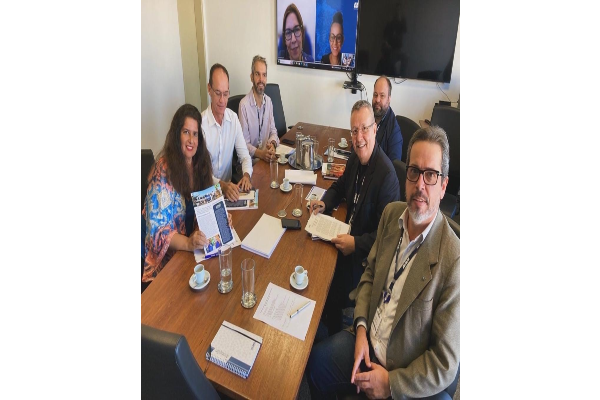
The Brazilian Institute of Geography and Statistics (IBGE) met with the head of South-South Cooperation and Emerging Areas of the International Trade Organization (ILO), Anita Amorim, on February 22, in Rio de Janeiro. The meeting aimed to advance support for the South-South Meeting of the Community of Portuguese Languages (CPLP), support for knowledge management in African Portuguese Official Languages (PALOP) and support for universal labour statistics and equality studies in G20 countries.
IBGE director, Ivone Lopes Batista, highlighted the difference between the Institute and other statistical institutions in Latin America and Latin American countries. Ivone emphasized the integration of Geography and Statistics in Brazil since its formation, which is beneficial for the country, as in addition to presenting statistics, it shows the spatial dynamics of the Brazilian territory.
The ILO representative, Anita Amorim highlighted that “the Organization already has a history of long partnership with the Institute. In November last year, we had a meeting with the statistics institutes of African Portuguese-speaking countries and with the IBGE, part of a very positive triangular south-south cooperation, serving to learn about statistics. We learned a little more about the Institute’s work plan and identified work in the area of care, climate change in the midst of major events such as the G20 meeting and COP-30”.
The Institute’s International Relations Manager, Roberto Sant’Anna highlighted that “the ILO is one of our partners and has been working with us on some activities. Brazil has a very large participation in the International Conference on Labour Statistics, CIET, being a reference center in this regard. From this meeting, we will build a joint cooperation agenda involving activities from the G20, as well as the South-South PALOPS”. César Marques, Deputy Coordinator of the National School of Statistical Sciences, highlighted the importance of the meeting for ENCE. “Meetings like this are essential in strengthening the training of PALOPS, in addition to giving visibility to the training actions we carry out and disseminating the research and case studies we carry out on the job market, gender and environmental issues”, explained the deputy coordinator of the National School of Statistical Sciences.

